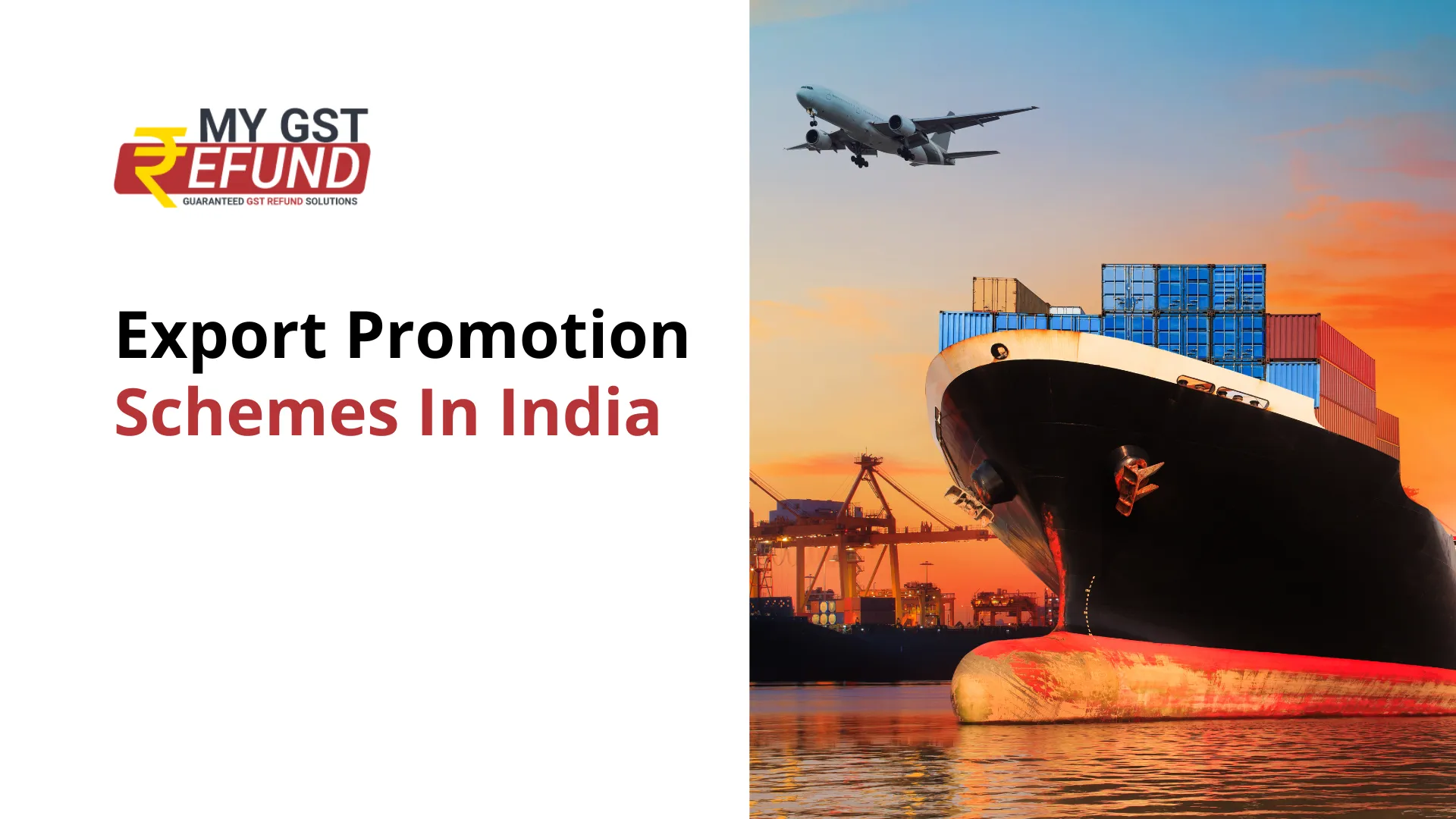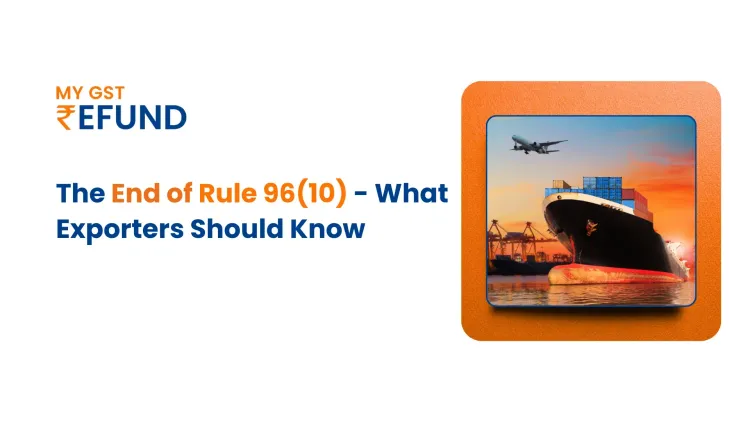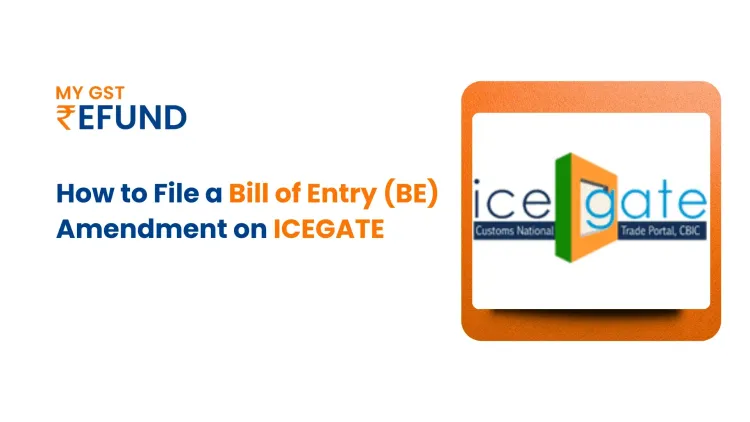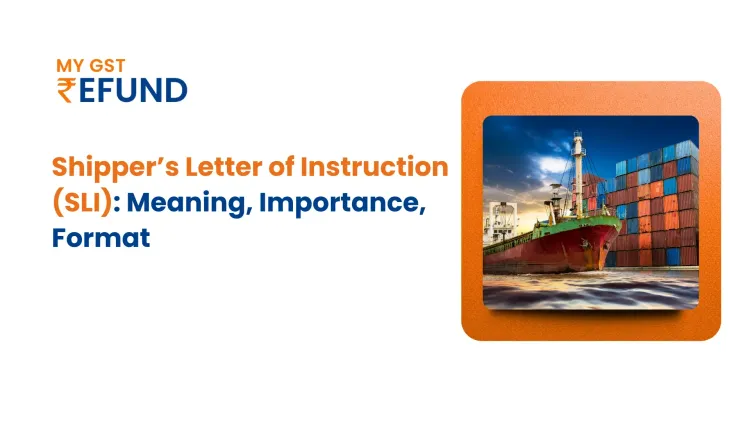Export incentives are a foreign exchange management measure introduced in India by the Ministry of Commerce and Industry to facilitate the expansion of exports and also to help the export sector grow. These measures include tax exemptions and duty drawbacks for companies exporting goods, financial encouragement for small exporters and allowing them easy access to credit, identification of specific product groups for export promotion, etc.
These incentives are offered to encourage commercial growth, boost exports, achieve self-sufficiency and ensure a higher reach of local products.
Types of Export Promotion
India’s Foreign Trade Policy (FTP) 2015-20 advocates export incentives offered by the Government through the Directorate General of Foreign Trade (DGFT). Key incentives provided by the Government to achieve its goal are as follows:
Rebate of Duties & Taxes on Exported Products (RoDTEP Scheme)
The Rebate of Duties & Taxes on Exported Products (RoDTEP) scheme is an export incentive program for exporters in India. Started on April 1, 2020, it aims to refund all duties and taxes paid by manufacturers during the production of goods for export. The scheme focuses on helping manufacturers lower their export-related costs, thereby boosting India's exports. Exporters can claim refunds of duties and taxes on their exported products under RoDTEP. The refund amount is based on the value-added content in the product, rather than its cost or selling price. This simplifies the process for exporters to determine their eligibility for duty refunds, as they do not need to consider price fluctuations or exchange rates.
Service Export Incentive Scheme (SEIS)
Service Export Incentive Scheme aims to compensate exporters for infrastructure inefficiencies and related costs. It also incentivizes exporters by offering credits for future customs duties through duty credit scrips. Under the MEIS rewards scheme, exporters receive incentives for exporting goods via courier or international post on consignments valued up to Rs. 5 lakh.
Duty Exemption And Remission Schemes
The Ministry of Commerce and Industry has launched two schemes to facilitate duty-free importation of inputs essential for exporting goods. The Duty Exemption Scheme permits the duty-free import of inputs used in manufacturing export products. On the other hand, the Duty Remission Scheme allows for the reimbursement of duties paid on imported inputs after these inputs have been used in the production of goods intended for export. These initiatives are designed to reduce costs for exporters and enhance competitiveness in global markets by facilitating smoother access to necessary raw materials and components.
Are you an exporter? Did you know you are eligible for a GST Refund ? Learn more- GST Refund for Exporters
Different Categories of Duty Exemption and Remission Scheme
Duty exemption schemes consist of-
1. Advance Authorisation Scheme (AAS)
The Advance Authorisation Scheme (AAS), managed by the Directorate General of Foreign Trade (DGFT), enables Indian exporters to import inputs duty-free for their export production. Under this scheme, exporters are exempt from paying duties on imported raw materials and components used in manufacturing, reducing financial burdens and potentially increasing profit margins.
The primary goal of AAS is to stimulate export production and enhance global competitiveness. It allows exporters to access duty-free imports of inputs that may be unavailable locally or economically impractical to source domestically. Additionally, exporters benefit from streamlined clearance processes and exemptions from taxes such as customs surcharges and sales tax, leading to savings in both time and costs.
2. Duty-Free Import Authorisation Scheme
The Duty-Free Import Authorization (DFIA) Scheme is a popular export incentive that allows Indian exporters to import inputs and capital goods without paying basic customs duty, Additional Customs Duty, or Countervailing Duty. This helps businesses save significantly on production costs and enhances their competitiveness in the global market.
Under this scheme, exporters can import specified inputs necessary for manufacturing export items. These imported inputs can be used directly in production, stored for future use, or even sold in the domestic market after being incorporated into exported products.
By reducing reliance on local suppliers, the DFIA Scheme gives exporters more control over their supply chain. It also provides access to new technologies, increases sales volume, improves product quality, and boosts long-term profitability.
Duty Remission Schemes consist of:
1. Duty Entitlement Passbook (DEPB) Scheme
The Indian Government introduced the Duty Entitlement Passbook Scheme (DEPB) on April 1, 1997, to reimburse duties paid by exporters as credits. Initially, DEPB consisted of two parts: pre-export and post-export. However, the pre-export component was phased out in April 2000.
Under the post-export DEPB, exporters receive a duty entitlement passbook after exporting goods. This passbook provides a predetermined credit based on the Free on-board (FOB) value of the exports. The scheme allows the importation of any commodity except for items prohibited from import, such as certain gold products like gold nibs, gold pens, and gold watches. Components used in writing instruments or watches are also excluded from eligibility under the DEPB scheme.
2. Duty Drawback Scheme (DBK)
The Duty Drawback Scheme (DBK) is a significant export incentive in India aimed at boosting exports. This scheme allows exporters to reclaim duties paid on inputs used in manufacturing or processing goods exported from India.DBK applies to all export products except rice and wheat and covers duties imposed by both the Central and State Governments. It provides exporters with tax relief, enhancing their competitiveness in international markets.
This scheme is particularly advantageous for sectors facing high taxation, such as textiles, engineering products, chemicals, gems & jewelry, and leather products, which are key segments contributing to India's export economy.
The Rebate on State & Central Taxes and Levies Scheme (RoSCTL)
The Rebate on State & Central Taxes and Levies Scheme (RoSCTL) is an export incentive initiative by the Indian Government to boost exports. It refunds state and central taxes and levies imposed on exported goods, covering excise duties, education cess, countervailing excise duty, and service tax. The rebate amount varies based on the exported product type and its value addition in India. Under RoSCTL, exporters can claim rebates for a wide range of products including textiles, chemicals, machinery parts, raw materials like iron ore, agricultural produce such as rice, seafood, dairy products, handicrafts, and other items under different chapters of the Export Tariff Act.
This scheme aims to lower production costs for exporters, enhancing their competitiveness in global markets. It also promotes the adoption of modern technology and improves product quality, thereby contributing to economic growth. RoSCTL applies across various sectors including manufacturing, services, and agriculture, provided exporters meet all stipulated government requirements like timely return filing and registration with Export Promotion Councils (EPCs).
Export Promotion Capital Goods (EPCG) Scheme
The Export Promotion Capital Goods (EPCG) Scheme is a government initiative in India that allows exporters to import capital goods at a reduced duty rate for use in pre-production, production, and post-production activities. This scheme aims to boost exports and enhance the competitiveness of Indian products globally.
Introduced under the Foreign Trade Policy 2015-2020, the EPCG Scheme simplifies the importation of capital goods for export-oriented businesses. Companies approved under this scheme can import capital goods with the condition that they fulfill an export obligation within eight years from the issuance of the license/authorization. Additionally, the imported goods must meet specific criteria, such as being used exclusively for production, manufacturing, or processing purposes, and should not exceed 15% of the value of exports in the preceding financial year.
Export Oriented Units (EOUs)
Export Oriented Units (EOUs) play a crucial role in India's export incentive schemes, promoting increased exports and economic development. These units enable the sale of products in global markets at competitive prices and benefit from tax advantages provided by the Government.EOUs are established to reduce India's reliance on imports, create employment opportunities, and boost foreign exchange earnings. They can operate as 100% export-oriented or semi-export-oriented based on their specific operational needs.
To qualify for incentives, EOUs must meet certain criteria such as duty-free import of inputs and capital goods, exemption from Central Excise Duty, and income tax holidays, as outlined in Government policies. These measures aim to support EOUs in enhancing their competitiveness and contributing to India's export growth.
Conclusion
In conclusion, India's export incentive schemes such as RoDTEP, SEIS, Duty Exemption, DEPB, Duty Drawback, RoSCTL, EPCG, and EOUs are essential for boosting exports and economic growth. These schemes lower costs, enhance competitiveness globally, and promote advanced technology and product quality improvements. By supporting exports across various industries, India aims to enhance self-sufficiency, explore new markets, and strengthen its position in global trade, ensuring ongoing economic growth through higher export volumes.
Also Read- Export Processing Zones in India
Related Posts








